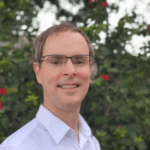Many people believe that getting cancer is down to genes, fate or bad luck. But cancers don’t develop overnight and through scientific research, we can find out how to lower our cancer risk by improving our diet, environment and other aspects of our lives.
Preventing cancer is high on the agenda as Western Australia’s first Cancer Prevention Research Unit (WACPRU) has open at Curtin University.
WACPRU is a partnership between Curtin University and the Cancer Council Western Australia and aims to be a collaborative think-tank, bringing together industry partners and researchers from many fields to focus on effective cancer prevention strategies.
According to the Cancer Council WA, there are more than 11,000 cases of cancer and 75,000 non-melanoma skin cancers diagnosed in WA every year and at least one third of those cancers are preventable.
Newly-appointed Director of WACPRU, Professor Simone Pettigrew says the unit will enable researchers to work together to address preventable cancers.
“WACPRU will be an activity hub for Curtin staff to work closely with the Cancer Council of WA and address modifiable risk factors for cancer across a broad range of areas including tobacco, alcohol, nutrition and sun exposure,” she says.
Health Sciences Dean of Research and Graduate Studies, Professor Garry Allison believes WACPRU will greatly benefit Curtin, Cancer Council WA and the community.
“This is an opportunity to build further capacity in cancer prevention with the continued partnership with a strong partner,” he says.
Having worked closely with Cancer Council WA previously, Professor Pettigrew is particularly interested in encouraging people to make behavioural changes and improve their diets to avert cancer and other illnesses.
“There are lives and money to be saved in effective cancer prevention,” she says.
Cancer Council WA Education and Research Director, Terry Slevin, says WACPRU will have a significant impact on cancer research and promoting prevention methods.
“We are thrilled with Professor Pettigrew’s appointment and are confident she and WACPRU will contribute to a greater scientific understanding of how chronic disease prevention can succeed,” he says.
“It will be a play an important role in guiding effective, evidence-based programs that reduce the burden of cancer in Western Australia.”



